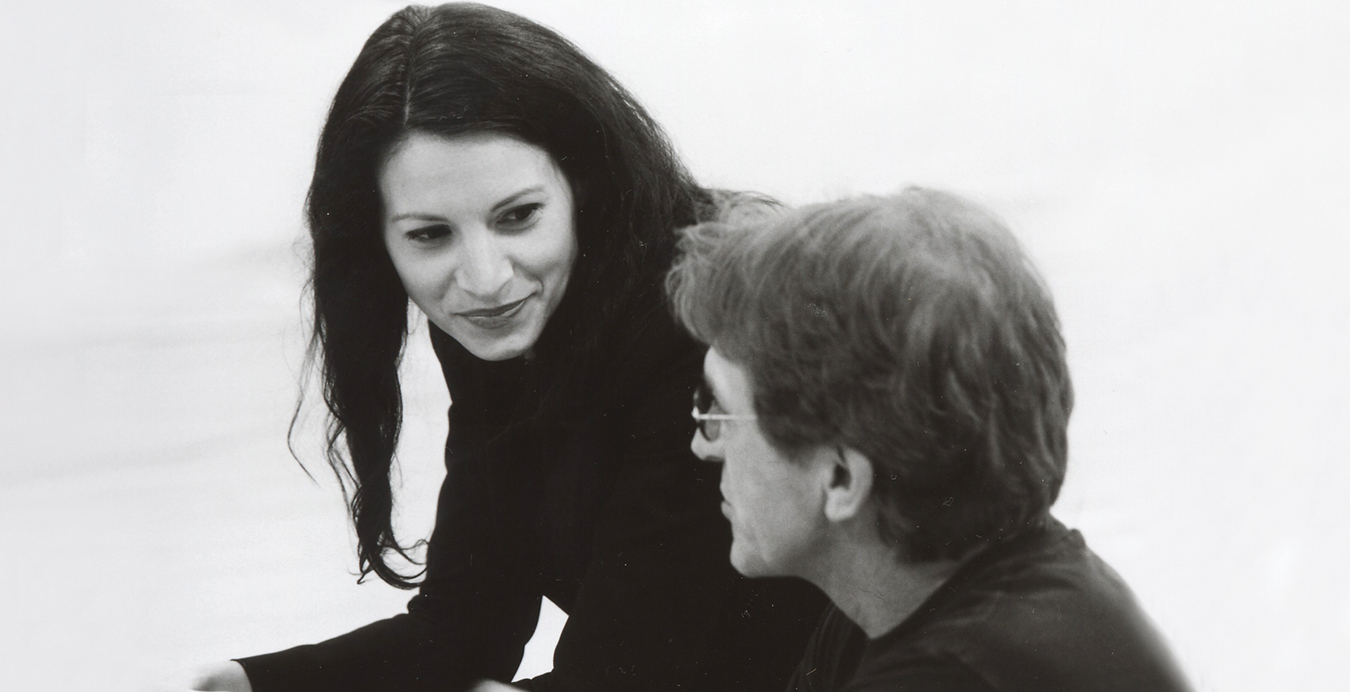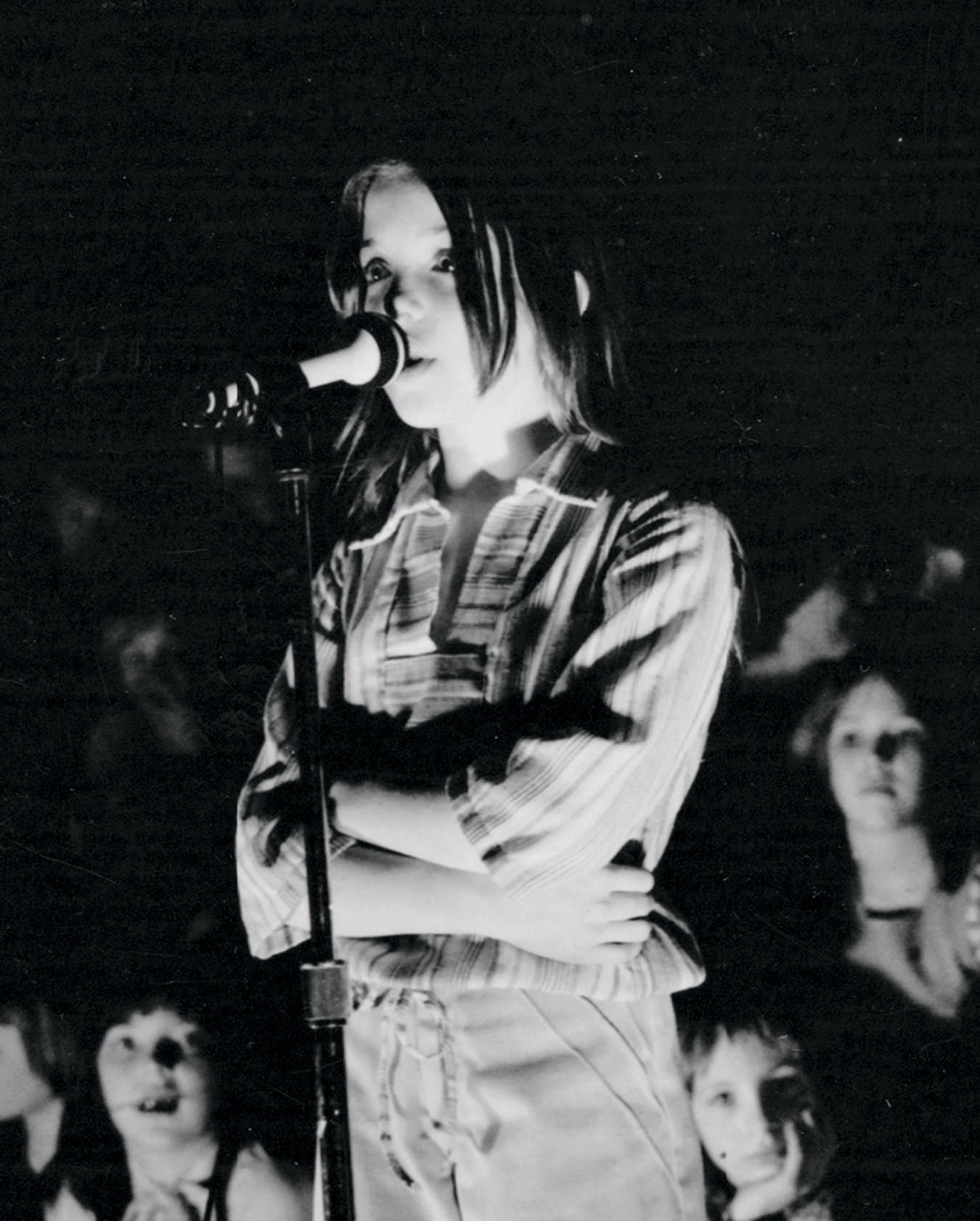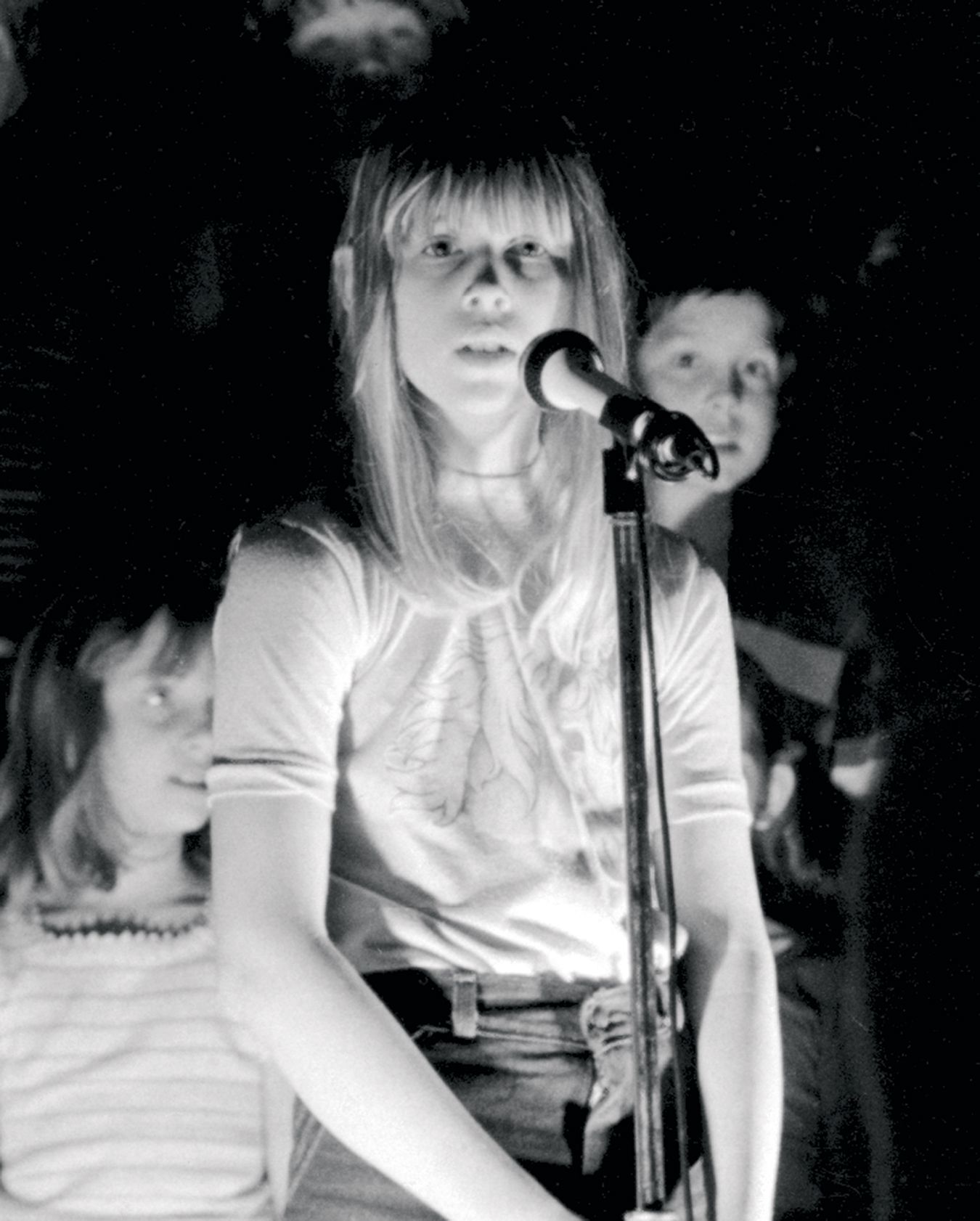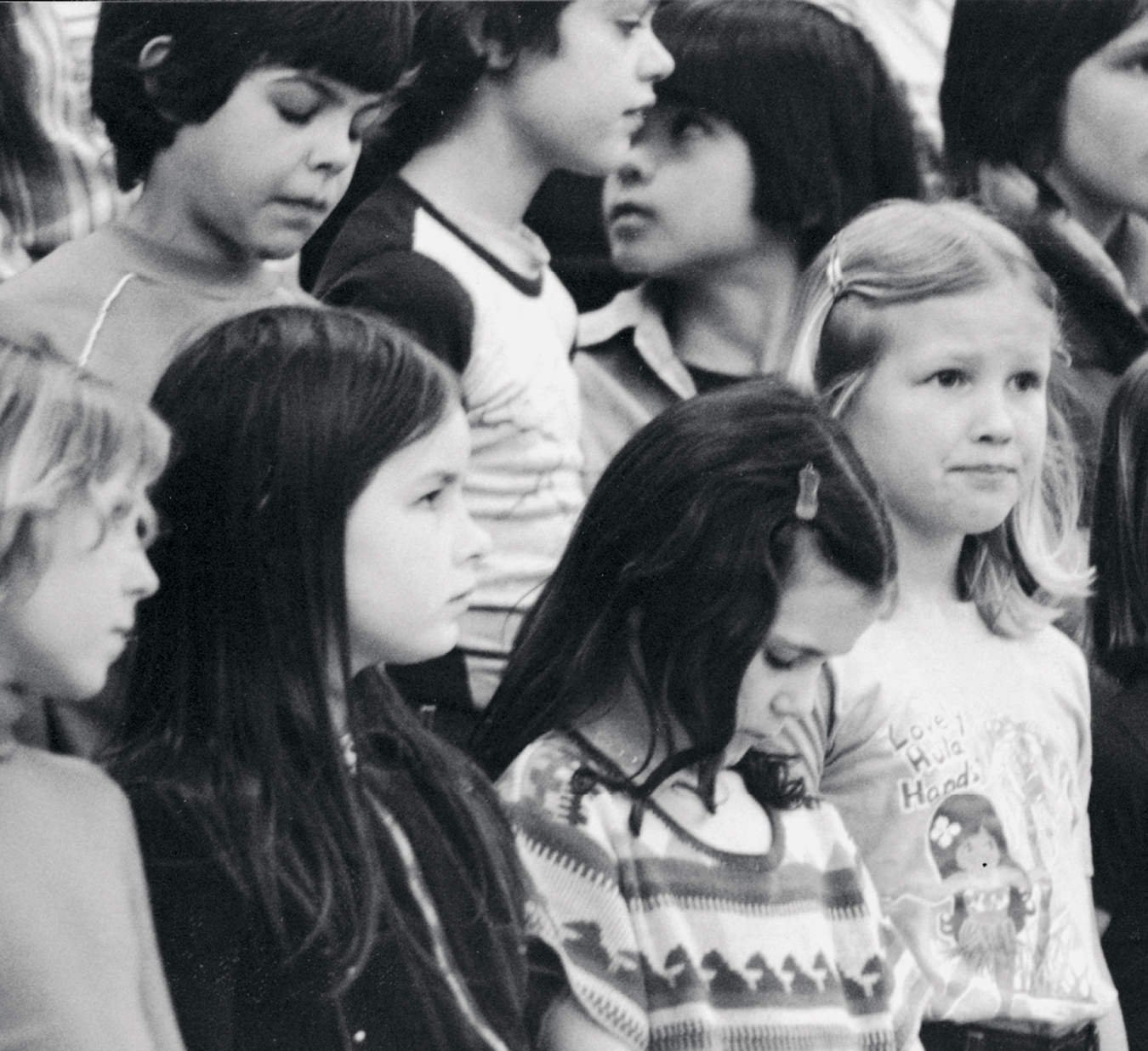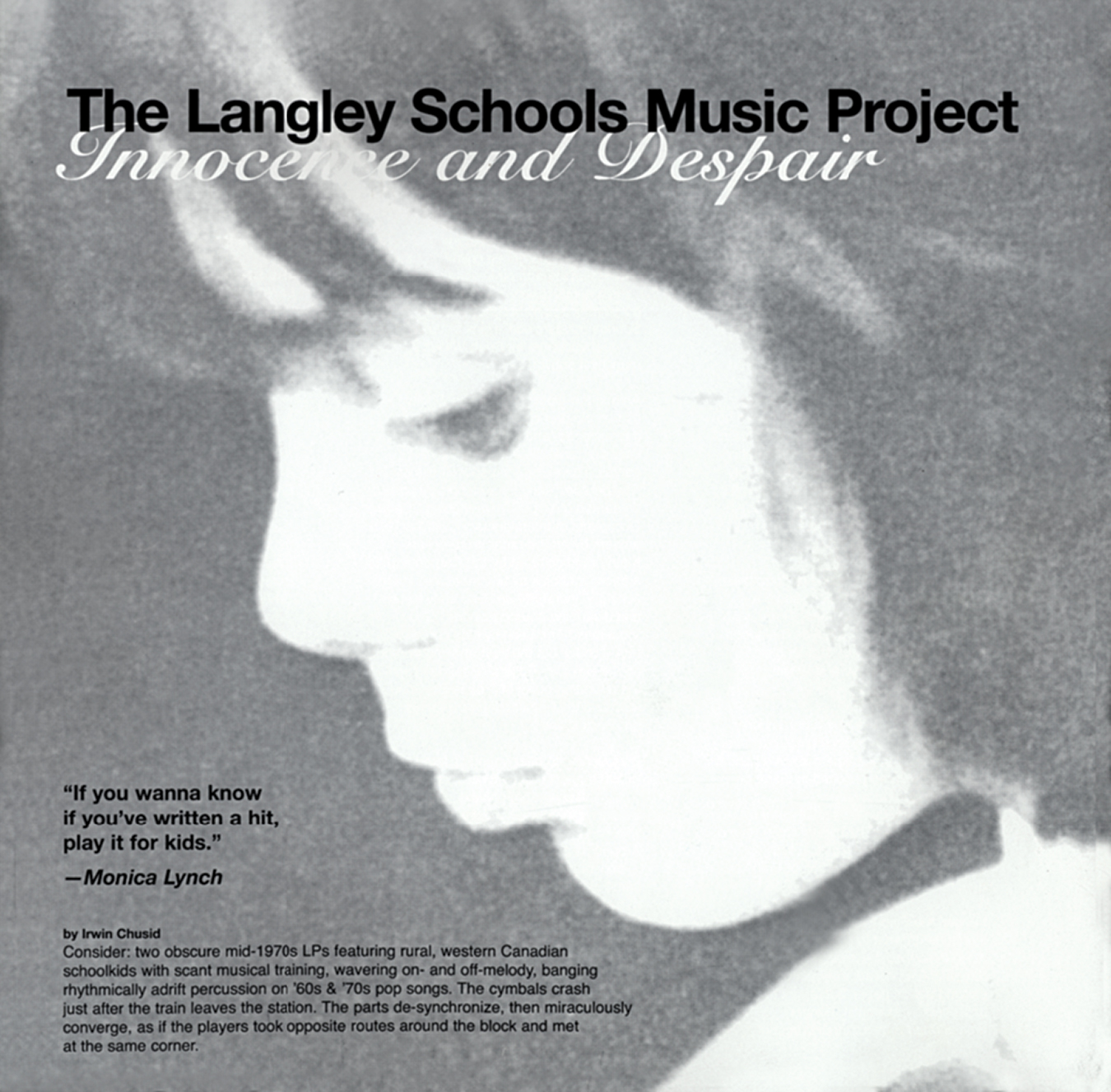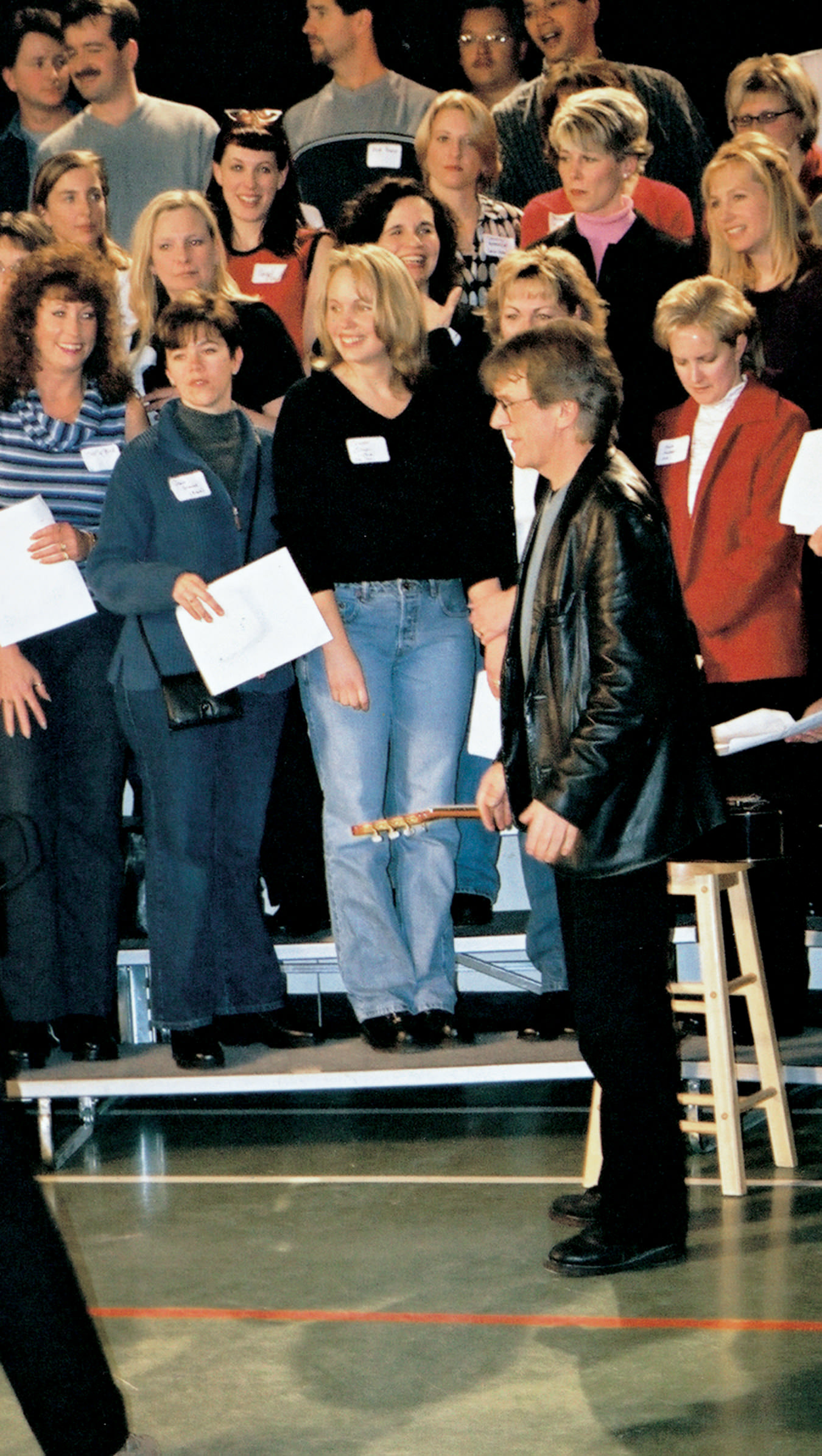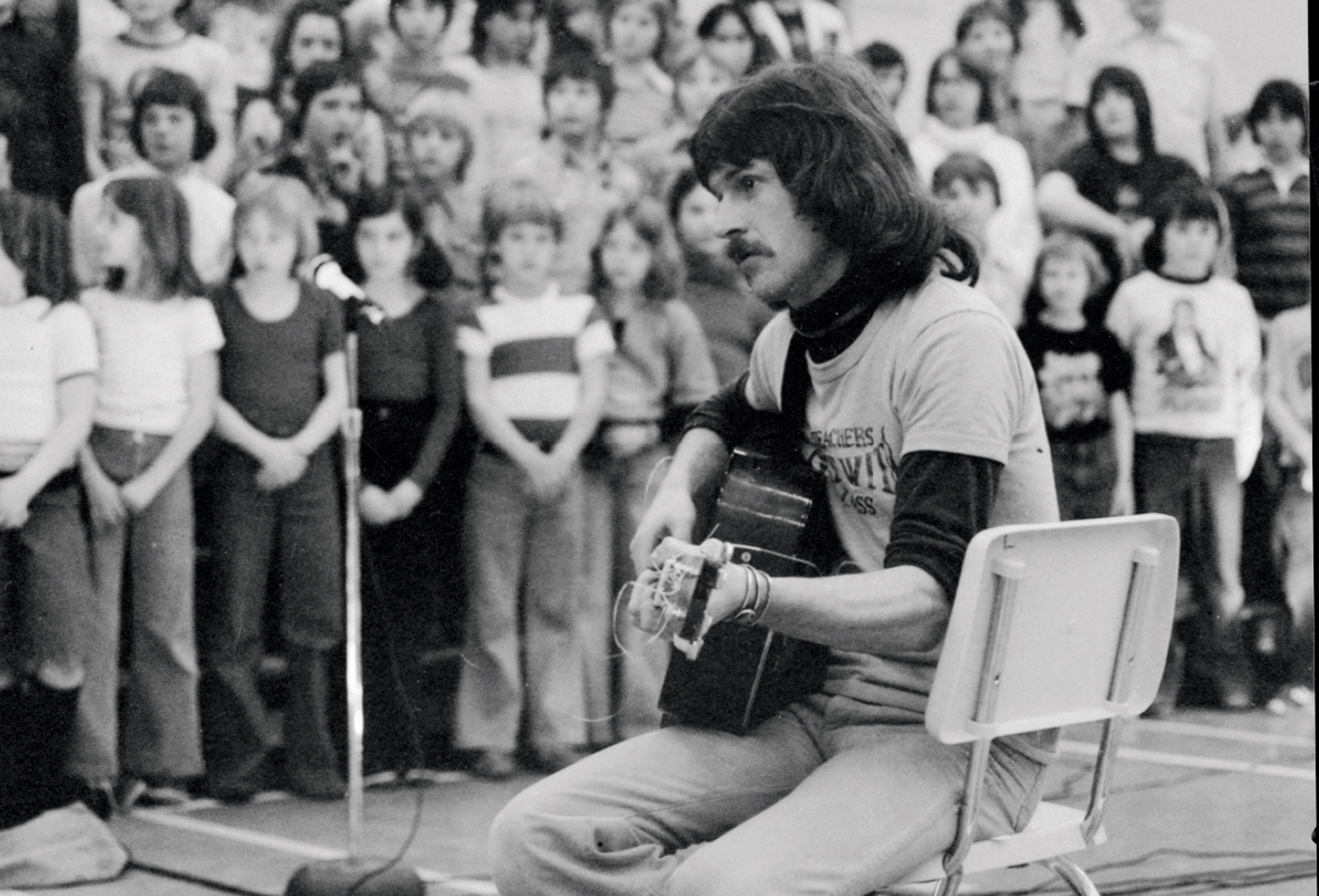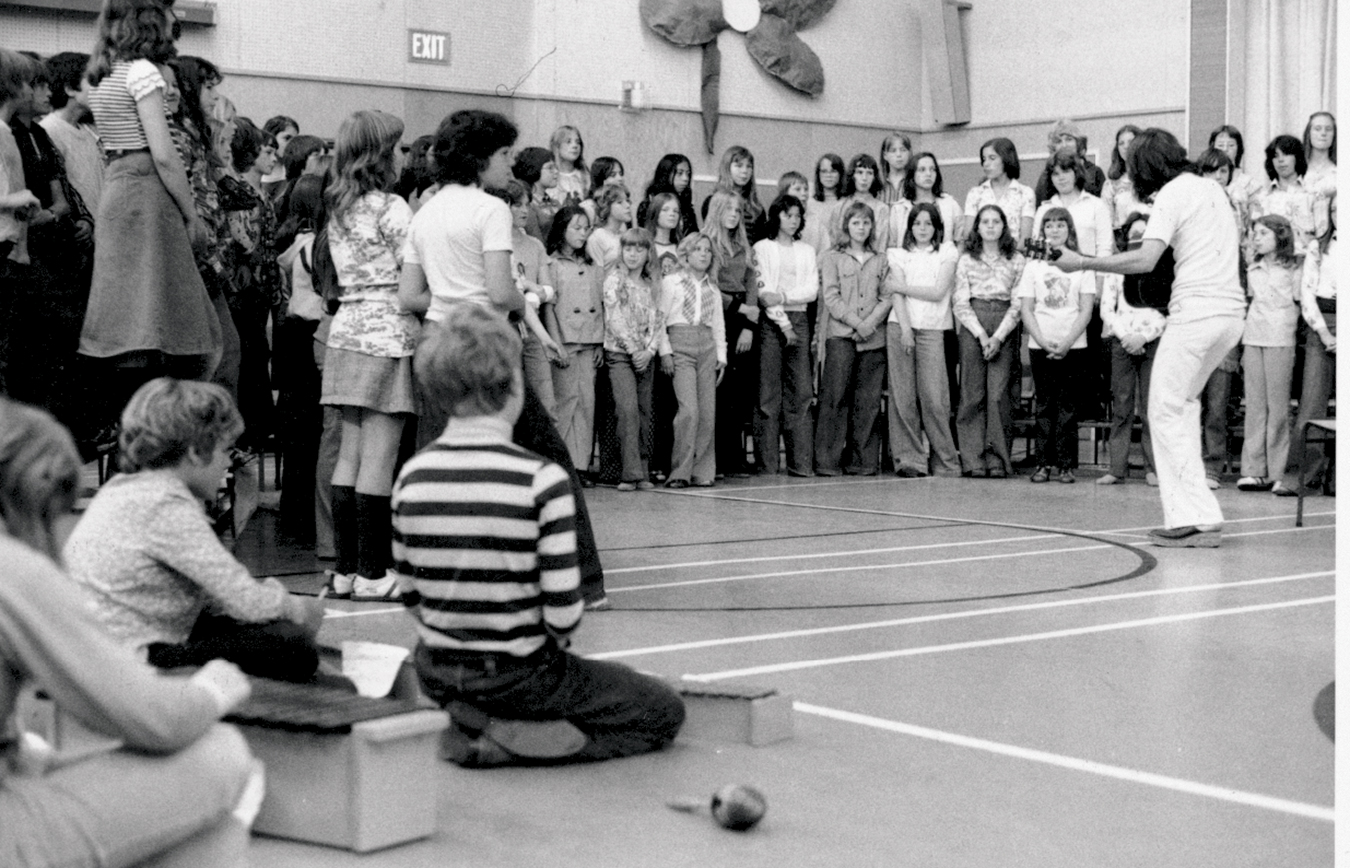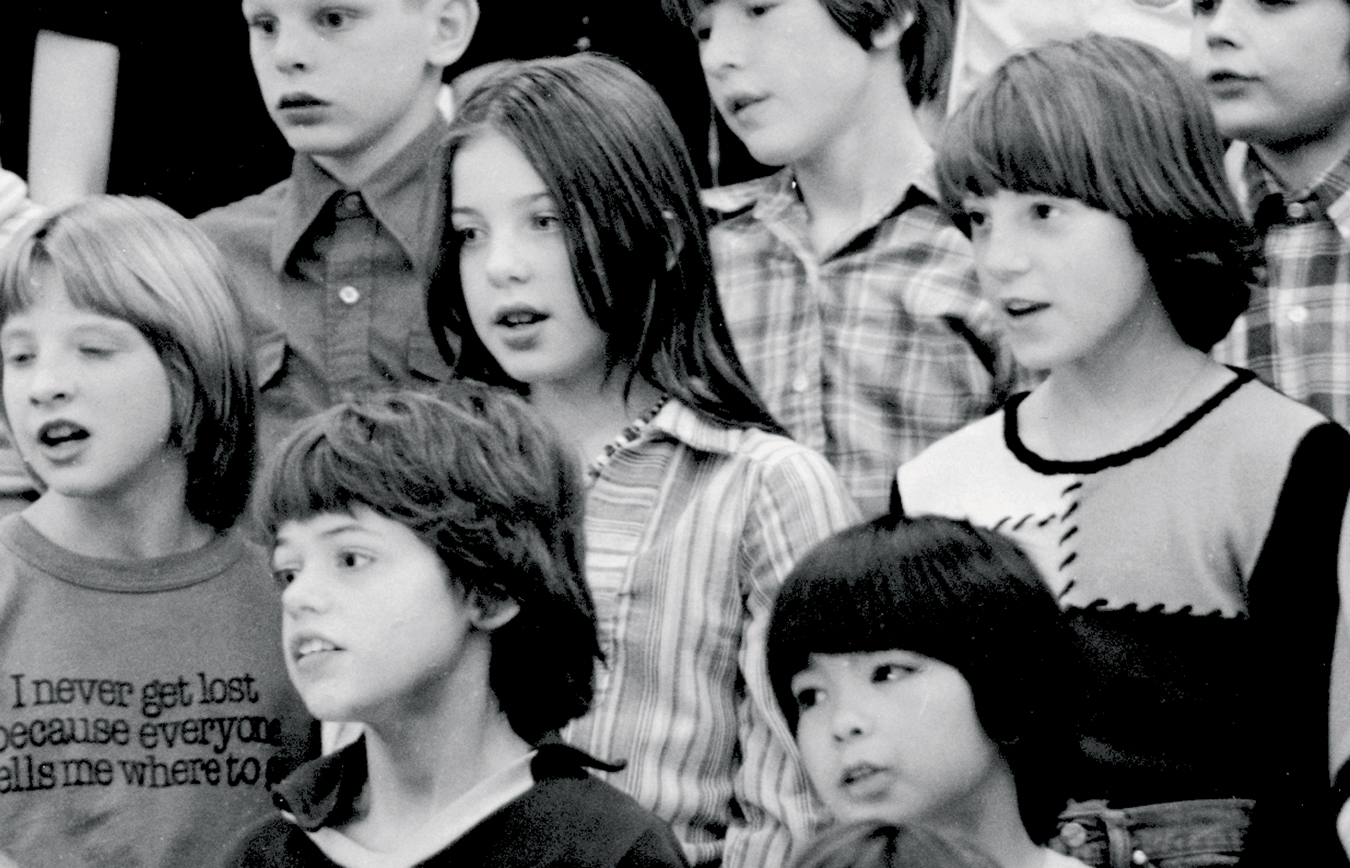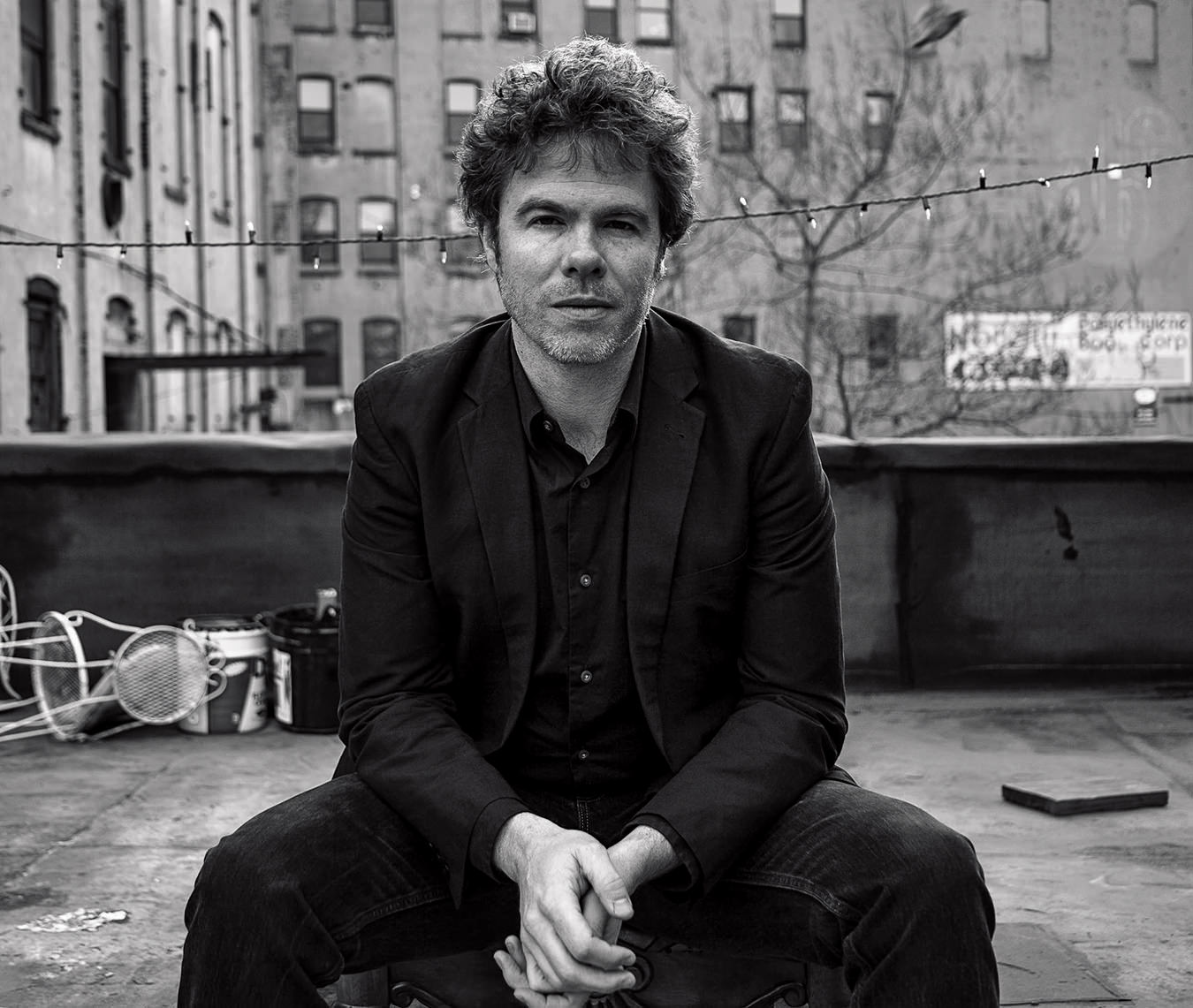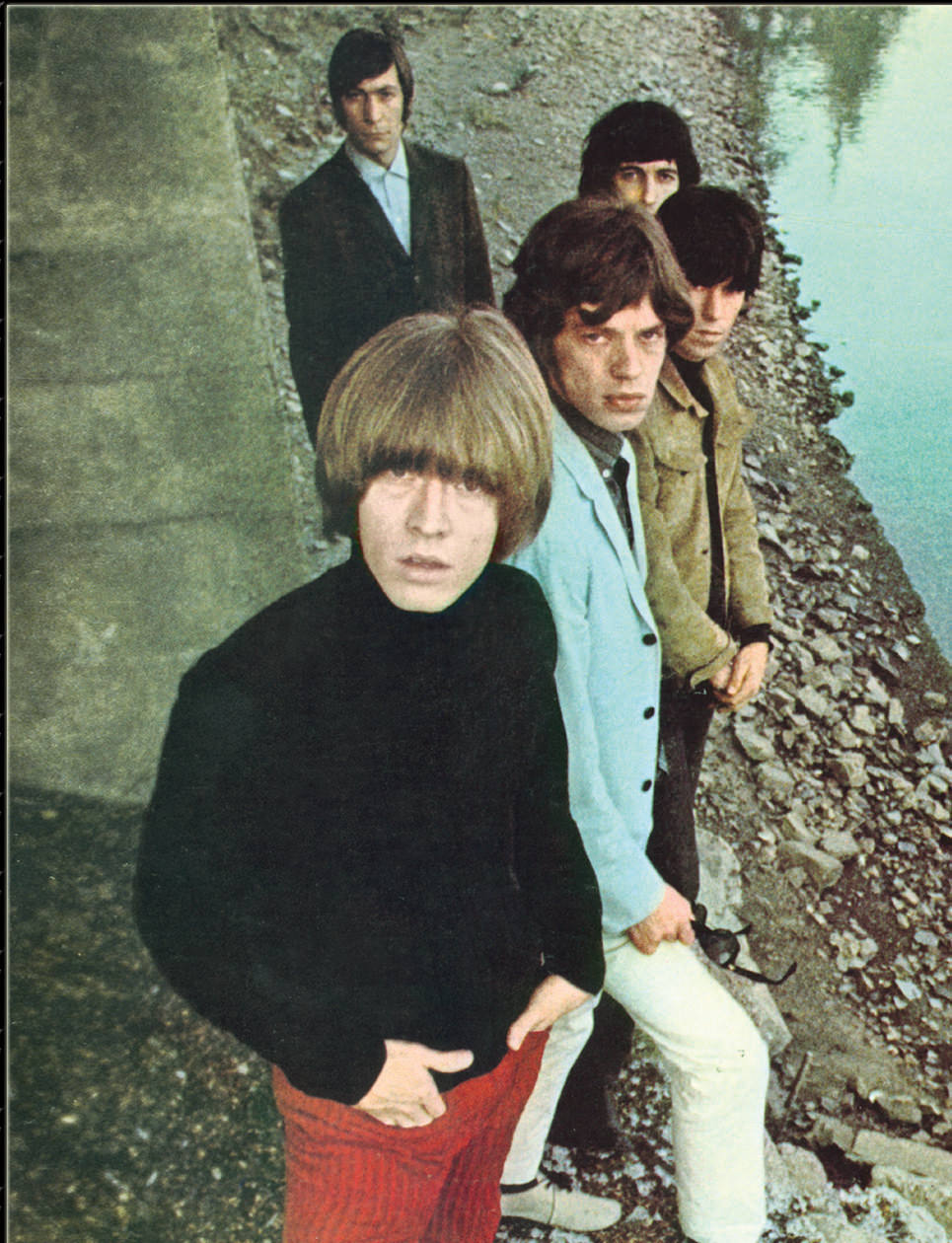Langley School of Music Project
Hans Fenger's magical musical mystery.
In the spring of 1976 Hans Fenger was a new-to-the-game music teacher. The ink barely dry on his teaching certificate, he landed a gig in a suburban British Columbia school. Conventional teaching styles weren’t his bag; but maybe making a record of some songs he’d been teaching his 9 to 12-year olds … that might fly.
Oh, how it flew. All right, it took time. And money. More of the former than the latter. The original project took $48 out of Hans Fenger’s pocket, for materials, tape and getting the photos developed, for the cover art. Every kid, every parent paid for their LP up front and that’s how they made it happen. He did it for the kids and the parents, and for the sheer fun of it and, probably most importantly: because he “didn’t know any better”.
Twenty-five years later, the all-but forgotten LP, original edition of 200, was rediscovered. Transferred to CD, it went on sale. In Britain, on the day of release, it outsold Mick Jagger’s solo album. This past spring, Fenger did it again: another concert, same premise, different kids, same “target audience”; kids and their parents. No “demographics”, no graphics to speak of, no marketing machine. Just a couple of borrowed mikes in a gym and a Revox tape recorder. Or was it a Teac? “Anyway, it’s the same tape machine” Hans Fenger recalls, with some wonderment. On the eve of his official retirement, he still did it mostly for the fun of it. And figures he still doesn’t know any better.
Certainly not about teaching music. Making music, now that’s a different thing; he’d been doing that since he was old enough to cradle a guitar. But the whole academic aspect, the teaching thing, he sort of slid into. And the result is one of the most curious, delightful, music-biz success stories in the book. Maybe even the movie. Fenger shakes his head, gently amazed: “The whole thing has been just an amazing experience. And yes there is a movie option signed; script to be developed.”
The amazing music teacher with the innate love for making music has chosen an atavistic, appropriately low-key meeting place: a very 60s diner in South Vancouver, not far from where he currently plies his unique craft, called Risty’s Café. We are huddled over grilled cheese sandwiches, pickle on the side, bottomless cup of coffee. “None of it was planned, you know.” The only planning was the recording session itself: get everybody in the gym, set up the mikes (there was no mixing board, “there was no mixing!”); augment (or in some cases, diminish) the instruments to allow small hands and fingers to deal with them. “I took all the strings but one off the bass guitar; that’s all we needed for the rhythm.” Slap a reel of tape on the deck and let it run. “It was such a tremendous surprise, all of it. All of what happened later.”
What did happen? In a nutshell: the tapes were recorded, the transfer to LPs was made, the records went home with the kids. Most of them eventually got garage-saled; a few kept theirs for nostalgia. Fast forward: somebody made a couple of tapes and these started moving in music circles in 2001. New York-based producer of musical curiosities (see: Songs in the Key of Z, among other past projects) and radio host Irwin Chusid heard one and finally tracked Hans Fenger down. They talked. They made a deal. The deal included returning whatever royalties the sale of a reissue CD would reap, to as many of the original participants as they could find, letting the local school board set up a trust to accommodate the rest.
But back near the beginning …. Hans Fenger recalls that the administration in Langley (“Don’t forget that was pretty much the Bible belt back then.”) was sympathetic to what he wanted to do. He could do it more or less his own way, which was just as well since, as he cheerfully admits now, “I knew nothing about teaching music in the conventional way, whatever that is, was, nor did I know anything about children’s music. Except that I didn’t like most of what passed for it, under that label.” But his parents were both musicians and he knew how to make music.
Much of what went down as “official” kids music is simply too coy, too cute. “Kids don’t have those bouncy, leave-it-to-Beaver lives and thoughts, all the time. Some don’t have them any of the time.” Not for him those correct songs about sharing and niceness. Alienation and loneliness were central themes that spoke to kids. He chose the tunes he knew and liked to play, by the Beach Boys, David Bowie, from The Carpenters, The Beatles, Bay City Rollers, Neil Diamond. “Loneliness is the central theme of 80 percent of those songs.” Maybe nobody really noticed when the original recordings came out; the title was just The Langley Schools Music Project. But when the CD appeared, they called it “Innocence and Despair”.
Hans Fenger recalls a period of personal turmoil right around this time; his own world was going through some shattering. The feelings lent a commonality to the project: “We were all in the same band, the same (head) space. It never felt like ‘I’m the teacher, you’re the students’. We were all just playing in the band. Playing.” These were songs that spoke to the kids in his class. Their enthusiasm fuelled his own, which was right up there to start with. Narrative music was the key: innate, gut-level messages and straight-to-the-heart, bypass-the-head emotions. “I guess I found a way of teaching people, kids, who might not necessarily be able to sing and play, to just do music; do it as a way of expressing a feeling, not turning it into anything academic. There’s no exclusion zone; everybody gets to play. You don’t kick a kid off the team, you find a way of integrating him into the group.”
Some of it was necessarily technical, like taking the three strings off the bass guitar so one player could fit her hand around it. Or assigning separate parts of a drum kit to individual players. Bringing in all those garage-sale percussion instruments, stripping a xylophone of any keys that didn’t fit into the harmonic structure; loading up on Orff instruments and spreading them around. Hans Fenger adapted to what he and the band wanted to play and hear.
Most people liked it. Well, the American Orff-Schulwerk Association wasn’t crazy about it: “It is very evident that the instruments are not used as they would be used in the Orff-Schulwerk approach. AOSA has no desire to be connected with this recording.” Desire or no, they are: their instruments are the percussion section, and there is a lot of percussion in these songs.
But most important, most parents loved it, mostly because the children were having such a great time. There were very few complaints; even the academics seemed happy. “Well, there were a couple of letters I got, more recently, that took me to task for, I guess, undermining conventional music teaching in schools.” But he pulls an e-mail from a former student out of a file: “What a program you provided! In Grade 5 we were singing “O Canada” from a book. When you came in Grade 6 we were thrilled … it was so much fun in your class. I too am a teacher and know how important it is to make an impact on your students. You definitely did that 25 years ago. You gave us an experience that I’ll never forget, that you didn’t exclude people because they lacked ability says a lot about you as a teacher.”
Nobody reviewed the original LP release. Everybody reviewed the CD reissue.
Google, and see for yourself: inside twelve seconds you’ve got 400 sites for Hans Fenger and the Langley Schools Music project. Log on to Bar-None Records and get more, including this lovely anonymous quote right at the top of the Langley page: “The angels love enthusiasm far more than perfection.”
And the “professional” raves came from everyone, David Bowie to Rolling Stone, SPIN Magazine (“Seems to sum up all the reasons music is holy”).
The heavy dailies of New York, Washington, Philadelphia, Chicago, Seattle. Audiogalaxy put it in the Top Ten of its reissues of 2001, alongside John Coltrane and The Grateful Dead, The Velvet Underground and Shuggie Otis.
And that’s how a Fourth Grade extra-curricular project becomes a best-seller; even a trend-setter. Hans Fenger observes, somewhat wryly, that there are at least four other CDs out there now by people who’ve taken the same road. He’s too gentle to call it copying but that’s what it is. Some of the notes and e-mails say thanks: “You’ve given us a key, you’ve liberated us in some ways” is one of the sentiments. The music teacher is at another school, David Lloyd George, in Vancouver, in “my last year teaching”. He’d planned to retire before but found he was having such a good time, he stayed on a bit longer. “Teaching music is so energizing. First song we ever did was “Help me Rhonda”. The music we made was from the heart and they knew, the kids knew, there was no condescension.
“I guess I was just never laid back,” is his answer when I ask where all the energy and the passion and the commitment came from. “And that’s what they responded too. We did real music and it felt like real music.” Even Rhonda? “Especially Rhonda, we must have done it 5,000 times. They couldn’t get enough of it. We were just a band ….”
Some of Hans Fenger’s students went on to make music, at various levels of professionalism or just enthusiasm; some are still doing it. And how’s it feel to become a musical icon just shortly before retirement? “I ask myself, how did all this happen? It’s been amazing.” I know how it happened. He made it happen. And it became what The Vancouver Sun’s John Mackie called “the delayed-reaction hit of all time”. And maybe it will happen again, with the DLG Project. And maybe it won’t, either. But I doubt the ‘retirement’ will take. It’s just the impression I take away from Risty’s Café after sharing that retro grilled cheese sandwich with Hans Fenger.
A lot of reviews and comments about the Langley Schools Music Project use the word “genius”. I don’t know. David Greenberger, in a Tower Records newsletter calls it right: “To call this a work of genius is both a misappropriation of the word as well as a misrepresentation of Fenger’s honest strengths. A true product of the 60s, he somehow wanted to make a difference.” And that he did. So genius? No, but genuine, yes, absolutely, for sure. Some of the letters in the word are the same. Maybe the best last word on the subject should come from one of Fenger’s students on the original session, Tina van der Weteringhe-Buys, who soloed on “Calling Occupants of Interplanetary Craft”. I think she nailed it: “It’s funny, because the question I keep hearing is ‘Did you guys realize the genius of this?’ I say, of course not, we realized that we didn’t have to go to school that day, and we got to cut an album, that was the big thing for us.” Just being the kids in the band. With the big kid on lead guitar.

